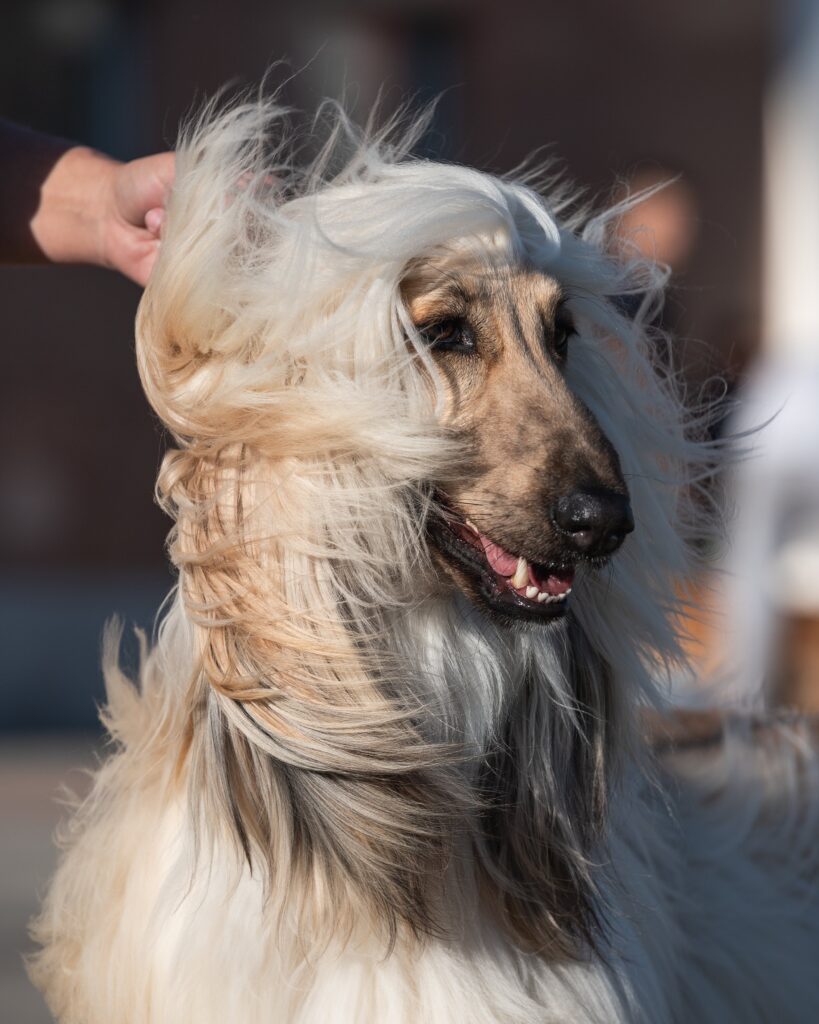The Newfoundland dog breed is a large and powerful working dog that originated in Newfoundland, Canada. They are known for their gentle and friendly nature, as well as their strength and swimming abilities. The breed is popular for a variety of reasons, including their loyalty, intelligence, and versatility.
Newfoundlands are often referred to as “gentle giants” due to their large size and calm temperament. They are known for being excellent family dogs and are often described as being great with children. Their friendly and patient nature makes them a popular choice for families looking for a loyal and loving companion.
History of the Newfoundland Dog Breed
The Newfoundland breed has a long and storied history that dates back several centuries. They were originally bred by fishermen in Newfoundland, Canada, who needed a strong and capable working dog to assist them in their daily tasks. The breed’s swimming abilities made them particularly well-suited for this role, as they were able to retrieve fishing nets and rescue people from the water.
In addition to their work as fishing dogs, Newfoundlands were also used as draft animals, pulling carts and sleds. Their strength and endurance made them invaluable in this role, and they were often used to transport goods across long distances.
The breed’s popularity began to grow in the 18th century when British explorers and sailors started bringing Newfoundlands back to England. They quickly gained a reputation as excellent working dogs and were soon sought after by nobility and royalty. Their popularity continued to grow throughout the 19th century, and they became a beloved breed among dog enthusiasts.
Physical Characteristics of the Newfoundland Dog Breed
Newfoundlands are large dogs, with males typically weighing between 130-150 pounds and females weighing between 100-120 pounds. They have a thick double coat that helps protect them from the cold water they were originally bred to work in. The coat can be either black, brown, or Landseer (black and white).
In addition to their size and coat, Newfoundlands have several other physical features that make them unique. They have a broad head with a strong muzzle and a gentle expression. Their eyes are dark and expressive, and their ears are set high on their head and hang down close to their cheeks.
Newfoundlands also have webbed feet, which make them excellent swimmers. This, combined with their powerful build and muscular body, allows them to navigate through water with ease.
Personality Traits of the Newfoundland Dog Breed
One of the most notable personality traits of the Newfoundland breed is their gentle and friendly nature. They are known for being patient and tolerant, making them great companions for families with children. They are also known for being protective of their loved ones and will often go to great lengths to keep them safe.
Newfoundlands are highly intelligent dogs and are eager to please their owners. This makes them relatively easy to train, although they can be stubborn at times. They respond well to positive reinforcement training methods and thrive in environments where they are given clear boundaries and consistent training.
In addition to their intelligence, Newfoundlands are also known for their calm and laid-back temperament. They are not typically prone to aggression or excessive barking, making them well-suited for apartment living or homes with close neighbors.
Health Concerns for the Newfoundland Dog Breed
Like all dog breeds, Newfoundlands are prone to certain health issues that potential owners should be aware of. Some of the most common health concerns for the breed include hip dysplasia, elbow dysplasia, and heart disease.
Hip dysplasia is a condition where the hip joint does not develop properly, leading to pain and mobility issues. Elbow dysplasia is a similar condition that affects the elbow joint. Both conditions can be managed with proper care and treatment, but they can be costly and require ongoing veterinary care.
Heart disease is another common health concern for Newfoundlands. They are prone to a condition called subaortic stenosis, which is a narrowing of the aorta. This can lead to heart murmurs and other cardiac issues. Regular check-ups with a veterinarian and a healthy diet can help manage this condition.
To prevent health problems in Newfoundlands, it is important to choose a reputable breeder who tests their breeding dogs for genetic health issues. Regular exercise, a balanced diet, and regular veterinary check-ups are also important for maintaining the overall health and well-being of the breed.
If a Newfoundland does become sick, it is important to provide them with proper care and treatment. This may include medication, dietary changes, or other interventions as recommended by a veterinarian. It is important to closely monitor their health and seek veterinary care at the first sign of illness.
Grooming and Care for the Newfoundland Dog Breed
Newfoundlands have a thick double coat that requires regular grooming to keep it healthy and free from mats and tangles. They should be brushed at least once a week to remove loose hair and prevent matting. During shedding season, which typically occurs twice a year, they may require more frequent brushing to manage the increased amount of hair they are shedding.
In addition to regular brushing, Newfoundlands should also have their nails trimmed regularly to prevent them from becoming too long and causing discomfort or injury. Their ears should be checked regularly for signs of infection or irritation, and their teeth should be brushed regularly to maintain good oral hygiene.
Newfoundlands are generally clean dogs and do not require frequent bathing unless they become particularly dirty or smelly. When bathing a Newfoundland, it is important to use a gentle dog shampoo that is specifically formulated for their sensitive skin.
Training and Exercise for the Newfoundland Dog Breed
Newfoundlands are intelligent dogs that are eager to please their owners, making them relatively easy to train. They respond well to positive reinforcement training methods, such as treats and praise, and thrive in environments where they are given clear boundaries and consistent training.
It is important to start training a Newfoundland from a young age to establish good behaviors and prevent any potential behavior problems from developing. Basic obedience training, such as sit, stay, and come, should be taught early on. They can also excel in more advanced training activities, such as agility or water rescue training.
In addition to mental stimulation through training, Newfoundlands also require regular exercise to keep them happy and healthy. They are a working breed and have a lot of energy that needs to be burned off. Daily walks, playtime in a fenced yard, and swimming are all great ways to provide them with the exercise they need.
It is important to note that Newfoundlands are not well-suited for hot climates or excessive heat. They have a thick double coat that can cause them to overheat easily. It is important to provide them with plenty of shade and fresh water during hot weather and avoid exercising them during the hottest parts of the day.
Socialization and Interaction with other Animals for the Newfoundland Dog Breed
Socialization is an important aspect of raising a Newfoundland puppy. Early socialization helps them become well-rounded dogs that are comfortable in a variety of situations and with different types of people and animals.
To socialize a Newfoundland, it is important to expose them to different environments, sounds, sights, and smells from a young age. This can include taking them on walks in different neighborhoods, introducing them to new people and animals, and exposing them to different types of surfaces and objects.
When introducing a Newfoundland to other animals, it is important to do so in a controlled and supervised manner. Slow introductions can help prevent any potential conflicts or aggression. It is important to monitor their interactions closely and intervene if any signs of aggression or discomfort are observed.
To prevent aggression in a Newfoundland, it is important to provide them with proper training and socialization from a young age. Consistent and positive reinforcement training methods can help establish good behaviors and prevent any potential aggression from developing.
Choosing and Adopting a Newfoundland Dog Breed
When choosing a Newfoundland, it is important to find a reputable breeder who prioritizes the health and well-being of their dogs. A reputable breeder will conduct health tests on their breeding dogs to ensure they are free from genetic health issues. They will also provide proper care and socialization for their puppies before they go to their new homes.
If adopting a Newfoundland from a shelter or rescue organization, it is important to ask about the dog’s history and any known health or behavior issues. It is also important to spend time with the dog before making a decision to ensure they are a good fit for your lifestyle and family.
When looking for a Newfoundland puppy, it is important to look for certain qualities that indicate good health and temperament. The puppy should be alert, curious, and playful. They should have clear eyes, clean ears, and a shiny coat. It is also important to observe the puppy’s interaction with their littermates and mother to get an idea of their temperament.
Conclusion and Final Thoughts on the Newfoundland Dog Breed
In conclusion, the Newfoundland dog breed is a large and powerful working dog that is known for their gentle and friendly nature. They have a long history as working dogs in Newfoundland, Canada, and have gained popularity around the world for their loyalty, intelligence, and versatility.
Newfoundlands require regular grooming and care to keep them healthy and happy. They are relatively easy to train and require regular exercise to burn off their energy. Socialization from a young age is important to ensure they become well-rounded dogs that are comfortable in a variety of situations.
Overall, the Newfoundland breed is a great choice for families looking for a loyal and loving companion. Their gentle and friendly nature, combined with their intelligence and versatility, make them a wonderful addition to any home.
If you’re interested in learning more about dog training, I highly recommend checking out the article “No-Nonsense Dog Training: A Complete Guide to Fully Train Any Dog.” This comprehensive guide provides step-by-step instructions and proven techniques to help you train your furry friend effectively. Whether you have a Newfoundland dog or any other breed, this guide will provide you with the knowledge and tools you need to establish a strong bond and create a well-behaved companion. Read more



